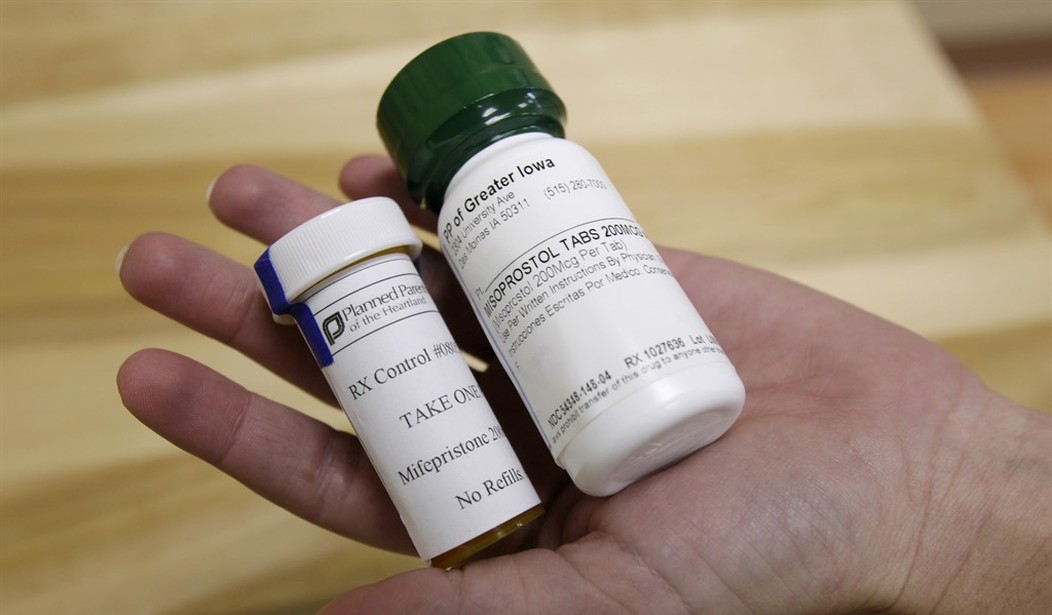Anyone involved in education, outreach, and activism with students of every age (as I am) can share stories of midnight emergency room runs, frightening allergic reactions, and even students collapsing at events, needing immediate care. Pretty much every parent has experienced the trauma of the late-night call to the pediatrician and the rush to a hospital. Injury, illness, and crisis rarely occur only on weekdays and during business hours, which makes California’s push to distribute deadly drugs designed to cause severe bleeding a tragedy in the making and a liability in search of a lawsuit.
And with California going off the abortion deep end, it’s up to Congress to provide life-saving support.
On January 1, 2023, California’s Senate Bill 24 will go into effect requiring all publicly funded universities in the state provide free chemical abortion pills to their students. There are a variety of issues with this law – the implications of taxpayers being forced to fund institutions that provide abortions, the liability for schools in the event of harm or death of a student, the environmental concerns as students and maintenance workers are exposed to blood and chemically tainted human tissue, and possible conscience violations should a campus health center employee wish to abstain from providing abortions against their religious or moral beliefs. And that’s just the short list of problems.
The most notable consequence of all, though, is the physical and emotional risks to the young women who will be encouraged by their educators and campus healthcare providers to take deadly chemical abortion pills should they find themselves unexpectedly pregnant. The abortion advocates will sell women short, and then sell them on abortion with the misogynist message that they can’t successfully balance education, career, and family.
California’s law aims to make young, college-aged women amateur abortionists, DIYing their own abortions in the dingy public restrooms often found in dormitory and shared campus housing, subjecting pregnant students and their peers to the horrors of chemical abortion.
Recommended
Chemical abortion is not Plan B or birth control, and can lead to injury, infertility, and even death. It is a two-drug regimen that essentially starves the unborn child before inducing labor. The mother is often told to sit on the toilet and flush without looking to prevent her from seeing a baby with distinguishable features such as fingers and toes. If that were not traumatic enough, this process can be incredibly painful and bloody. Some of the most ardent abortion supporters vow never to use chemical abortion pills again after experiencing these adverse effects.
In Students for Life of America’s This is Chemical Abortion booklet, women’s real-life stories with chemical abortion make for painful reading. One woman shared, “I wish they told me these pills wouldn’t end the baby’s life. It came out in sack, with all the limbs and eyes … heart still beating. If I knew that would be the outcome I would’ve never done it.”
Intense cramping and hemorrhaging may last days to weeks. Some effects are even more long-lasting, such as immune system inhibition, depression, anxiety, other mental health issues, and even the inability to become or stay pregnant in the future. Studies even suggest that women who have an abortion during their first pregnancy are 65 percent more likely to be considered "high risk" for clinical depression.
If the chemical abortion pills are misused, an incomplete abortion may lead to severe infection, which is what killed California student Holly Peterson to the sorrow of her family. We know that chemical abortion has four times the complication rate of surgical abortion and seven percent of women who take these pills will require surgical intervention due to incomplete abortion. If left untreated, the baby’s tissue will decay in the mother’s womb, leading to septic shock and even death. The risk of death with chemical abortion is ten times higher than surgical abortion. In fact, more than 20 women have died after taking chemical abortion pills. That number could be even higher due to underreporting.
In the event of an emergency, college health centers are ill-equipped to help a student suffering from complications after taking the chemical abortion pills. They do not have the medical training, blood supplies, or equipment to successfully intervene should surgery be required.
That’s why the Protecting Life on College Campus Act of 2021 was introduced by U.S. Representative Chip Roy (R-TX-21) and U.S. Senator Steve Daines (R-MT). If passed, this bill would prohibit federal funding for any college that provides abortions to their students and/or faculty.
Governor Gavin Newsom significantly overreached his authority when he signed S.B. 24 into law, putting students in harm’s way to advance a radical pro-abortion agenda and appease Corporate Abortion. Institutions of higher education exist to help students transition into adulthood and reach their life’s goals. Instead of convincing women that abortion is the “easy way out” – which we know is blatantly false – universities should be promoting the rights and resources available to pregnant students, empowering them to reach their professional and educational goals while pregnant and parenting.
The dangers in California are just the beginning. Other states have introduced similar legislation to essentially convert student health centers into abortion vendors and dormitories into abortion facilities. But when campus health centers have closed their doors early for the day, women need help they can rely on. And that help will not come from the pill pushers profiting from chemical Abortion.
From California, Brooke Paz is Government Affairs Coordinator of Students for Life Action, with groups in all 50 states on more than 1,250 middle and high school, college and university, medical and law school campuses.

























Join the conversation as a VIP Member